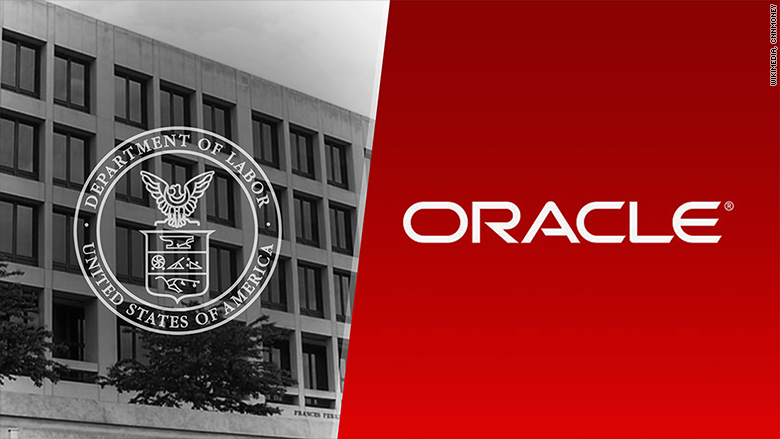Oracle is the latest technology company to face scrutiny from the U.S. government over its hiring practices.
The Department of Labor is suing Oracle (ORCL) for allegedly paying white men more than other employees and discriminating against non-Asian job applicants when hiring for technical roles.
The lawsuit stems from Oracle's role providing cloud computing software to federal agencies, totaling "hundreds of millions" in contracts, according to the Department of Labor.
As a federal contractor, Oracle is obligated to show the government that its hiring doesn't discriminate based on race, religion, sexual orientation, gender and more.
The legal complaint asks the court to order the cancellation of all of Oracle's federal contracts unless it prohibits discriminatory hiring practices and makes up for lost compensation and employment benefits to those affected.
"The complaint is politically motivated, based on false allegations, and wholly without merit," Deborah Hellinger, a spokeswoman for Oracle, said in a statement provided to CNNMoney. "Oracle values diversity and inclusion, and is a responsible equal opportunity and affirmative action employer."
Related: Trump sits down with top Silicon Valley execs
Earlier this month, the Department of Labor filed a lawsuit against Google (GOOGL), pressuring it to turn over compensation data on its employees. The agency also sued Palantir, a data software startup, in September for allegedly discriminating against Asian applicants.

All three tech companies are federal contractors. Two of the three are overseen by executives close to the incoming Trump administration. Palantir cofounder Peter Thiel and Oracle co-CEO Safra Catz are both on Donald Trump's transition team.
The series of government lawsuits comes as Silicon Valley is very publicly trying -- and often failing -- to improve its diversity. Annual transparency reports from many of the big companies reveal the tech industry remains largely white and male.
The increased media attention may be influencing the Department of Labor as well.
"They read the same stories that everyone else reads. It's something I'm sure they take note of," says D. Michael Hancock, a former Department of Labor official who now works as a lawyer at Cohen Milstein. "They probably said, 'Now that we're getting [employee] complaints, we should take a closer look.' "

